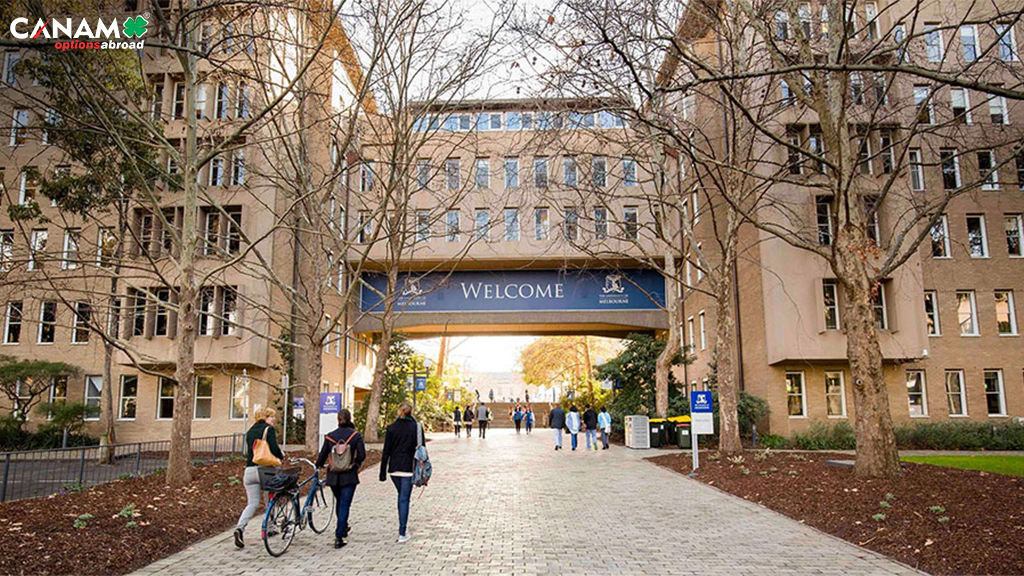
The Path Forward for Australian Universities: 2025 and Beyond
The Path Forward for Australian Universities: 2025 and Beyond
The Australian higher education system is undergoing significant policy changes to drive growth, equity, and innovation. In 2024, the Australian government launched the Universities Accord, an ambitious plan to restructure the sector and foster sustainable growth.
Among its bold targets is the goal to double the number of domestic students in higher education, increasing enrollments from 900,000 to 1.8 million by 2050.
Achieving this milestone will require substantial investment in teaching resources, research, infrastructure, and support services. Luke Sheehy, CEO of Universities Australia, underlined the importance of financial stability for the sector.
“Universities need consistent support to plan and grow effectively,” he noted, emphasizing the necessity of collaboration between policymakers and institutions to realize this vision.
Nevertheless, policymaking in the higher education space is not without its challenges. For instance, the federal government recently proposed capping international enrollments to ensure that domestic student needs remain a priority.
The idea, however, sparked widespread debate, with critics warning that it could destabilize a vital sector of the economy. Australia’s international education market generates over AUD 40 billion annually, making it one of its largest exports.
Although the proposed cap was shelved, the episode highlights the complex balancing act between regulation and institutional autonomy.
Learn more about the Universities Accord here.

Financial Sustainability and Diversification
Australian universities are still recovering from the financial blows delivered during the COVID-19 pandemic.
The sector experienced a revenue shortfall of AUD 2.1 billion in 2020, primarily due to reduced international student enrollments.
The sector remains under financial strain even as global borders reopened and international student numbers surged.
One critical lesson for universities has been the need to diversify income sources.
Many institutions are exploring alternative funding streams to reduce reliance on traditional models, such as tuition fees and government grants. These include:
- Expanding online and hybrid learning models: Programs catering to remote learners have seen strong growth, especially among working professionals and international students unable to relocate.
- Micro-credentialing and short courses: Tailored for professionals seeking to upskill, these programs have gained popularity in the tech, healthcare, and business sectors.
- Industry partnerships: Collaborations with the private sector help institutions commercialize research, provide practical training opportunities, and generate additional revenue streams.
Australian universities aim to strengthen their financial resilience and better serve a diverse student population by focusing on these strategies.
Learn how diversification supports universities.
Technological Advancements and Digital Transformation
As technological innovation disrupts traditional education models, universities must keep pace with rising student expectations. A survey conducted in 2023 revealed that 96% of students now expect high-quality digital interactions as part of their university experience.
This includes seamless access to learning platforms, efficient administrative services, and personalized academic support.
Australian universities are investing heavily in intelligent automation, artificial intelligence (AI), and low-code platforms. These technologies streamline administrative workflows, reduce costs, and free up resources for academic priorities.
For example, AI-driven tools can optimize course scheduling, personalize learning experiences, and even assist in the early identification of at-risk students.
Multi-modal learning has also gained momentum. Blended education models combine face-to-face instruction with online learning tools, offering flexibility to students and extending access to those in remote or international locations.
These innovations have helped Australian institutions compete globally, delivering quality education while addressing operational inefficiencies.
Explore how digital transformation impacts education.
Inclusivity, Diversity, and Addressing Skills Gaps
The need to foster inclusivity and diversity in education is more pressing than ever. Australian universities are being urged to rebalance their focus between traditional degrees and vocational education and training (VET).
With 33% of Australian occupations experiencing critical skills shortages, the government has called for a cultural shift in how families and students perceive VET.
Australia’s skills commissioner, Barney Glover, emphasized that vocational pathways offer exciting and lucrative career opportunities, particularly in technology, trades, and healthcare.
To meet workforce demands, policymakers encourage universities and TAFE colleges to collaborate on joint initiatives, integrating vocational training with academic programs.
Gender imbalances in engineering, technology, and leadership professions remain a concern.
Universities actively address these issues through targeted scholarship programs, mentoring, and inclusive hiring practices.
Similarly, efforts to make education accessible for students from underrepresented communities, such as Indigenous Australians and those from low-income families, are central to institutional strategies.
Read about strategies to address skills gaps.
Navigating Controversies and Upholding Academic Values
The road ahead for Australian universities also involves navigating complex sociopolitical challenges. One recent controversy involved Australia’s Group of Eight universities rejecting the International Holocaust Remembrance Alliance (IHRA) definition of anti-Semitism.
While the decision was framed as a defence of academic freedom, it has drawn criticism from community leaders who argue that universities must provide a safe and inclusive environment for all students.
This case highlights institutions' fine line between protecting free expression and fostering an inclusive culture. Universities must uphold their core values while adapting to the evolving social and cultural landscape.
Learn more about academic freedom in Australian universities.
Conclusion
Australian universities are at a pivotal moment in their evolution. The years ahead present both challenges and opportunities, from implementing policy reforms to embracing digital transformation.
These institutions can secure their place as leaders in global education by focusing on financial sustainability, fostering inclusivity, addressing skills gaps, and upholding their commitment to excellence.
While the journey will require adaptability, collaboration, and bold thinking, the foundation for success is strong. Australia’s universities have consistently demonstrated resilience, innovation, and an unwavering commitment to shaping the future of education.
Let us help you yield your true academic potential for foreign education. To configure and discover an apt international enrolment strategy, get in touch!
- +923041111444
- info@edify.pk
- Edify Building, 3rd Floor, Madina Town Faisalabad
© 2026 Edify Group of Companies. All Rights Reserved.







